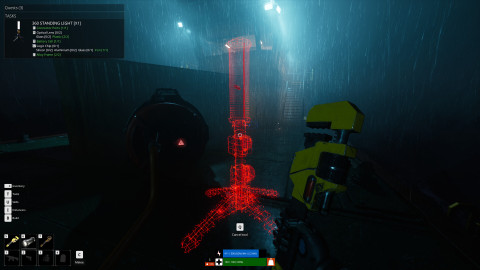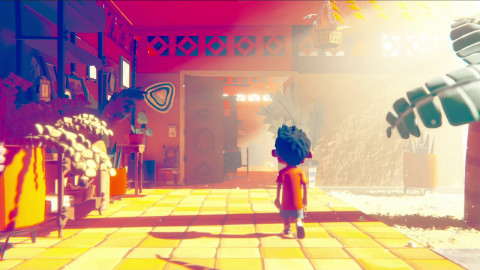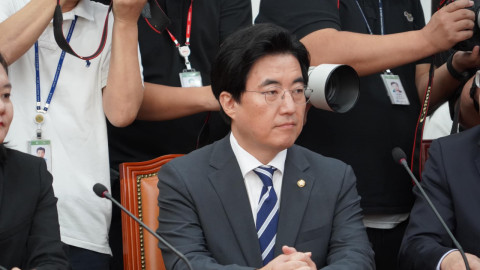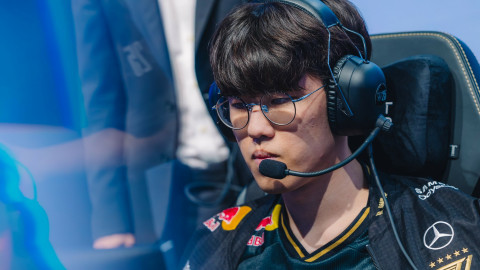
The irony was lost on the League of Legends European Championship (LEC), when on July 29, still bearing their Pride-colored avatar, Riot Games announced the Saudi Arabian city of Neom as main sponsor. It paired one of the most progressive leagues in LoL — both in terms of their production quality and their advocating of LGBTQ+ rights — with an entity long infamous for its rampant disregard of human rights.

The backlash was immediate. LEC talent and community members were first, expressing their disappointment and frustration with the decision.
“The league I cover is now promoting a country that would kill me just for existing. Feels great,” wrote James “Stress” O’Leary, community manager for LEC partnered team MAD Lions.
When North America woke up to the news, LCS talent and the wider League of Legends community joined the revolt. 14 hours after the announcement went public, in a decision that couldn't have been easy, LEC tore up the contract, putting an end to perhaps the most short-lived partnership in recent esports history.
This article aims to explain why the uproar against this deal was so loud and so widespread. What is Neom? Who’s building it, how, and why does it lay on "blood and bones"?
The brainchild of Saudi Arabia crown prince Mohammed bin Salman (MBS), Neom is a bold enterprise. Described as the city of the future [NEOM: from Neo- (new) and Mustaqbal (future) — Ed.], Neom is being built at the border intersection between Saudi Arabia, Egypt, Israel, and Jordan, right on the shores of the Red Sea. It is as much a city as it is a brand, hence its all-capital stylization of NEOM.
When the project was announced in 2017, MBS described it as a place that is “not for conventional people or conventional companies, this will be a place for the dreamers for the world”. The city would also have its own tax and labor laws and judicial system, giving it a sort of autonomy within the Saudi Arabian kingdom. Strategically placed at a busy maritime commerce location near the Suez Channel, Neom — when or if finished — could become a critical hub for Saudi Arabia’s economy.
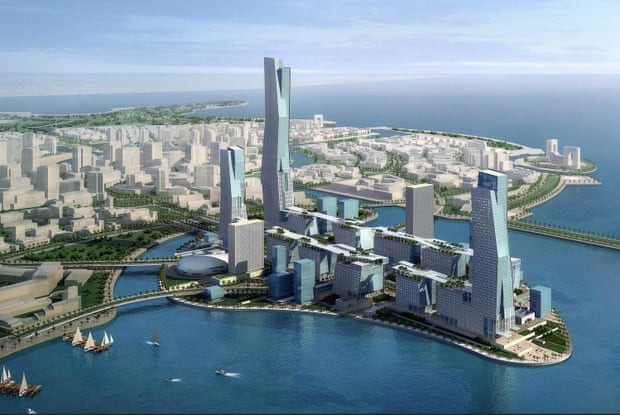
According to Saudi Arabia’s Public Investment Fund (PIF), the project will cost $500B. By comparison, that’s almost as much as the GDP of Sweden, and $190B short of Saudi Arabia’s own GDP. What’s more, a recent report from February 2020 from Blooloop states that even this staggering sum will not be enough to complete the project and Saudi Arabia will have to look for foreign investments to secure the rest of the funding.
Why a country is sinking such colossal sums into a city can be explained with the reforms that MBS is pushing in Saudi Arabia, aimed at distancing the country from its aged, conservative traditions. And one of Prince’s goals is to restructure the Saudi Arabia economy.
According to OPEC, the oil and gas sector makes for 40-50 percent of Saudi Arabia’s GPD and over 70 percent of its export earnings (in 2018, Forbes reported that oil made for as high as 90 percent of export earnings). In addition, as part of its oil war with Russia, Saudi Arabia’s recent politics has been to undercut the price of oil for the U.S., Europe, and Asia, hoping to win the “late game” through its almost unmatched production. Which is why MBS wants to find another source of cash injection. If oil remains cheap, Saudi Arabia won’t be making as much money from exports. And if the country loses the oil war with Russia, it will need an alternative income even more.
This is where Neom comes in. MBS wants the city to operate on renewable energy (wind and solar). Its futuristic design is also meant to attract a massive wave of tourists, as part of MBS’ Vision 2030 plan, hoping to draw high-paying, western visitors to Saudi Arabia.
The first phase of the Neom project is to be completed by the end of 2025.

The Neom project has been infected with scandals and controversies almost from day one, and at the center is Prince Mohammed bin Salman.
The de facto leader of Saudi Arabia, MBS has tried to lead the country to a more progressive future — or “progressive” compared to its old ways, at the very least. Publicly, he’s been championing women’s rights, saying in April, quote:
“I just want to remind the world that American women had to wait long to get their right to vote. So we need time. We have taken many steps. In King Salman’s [Prince Mohammed’s father — Ed.] time, women were able to vote for the first time and 20 women won in these elections. Women can now work in any sector. In business and commerce, as a lawyer, in the political field and in all sectors. Women can carry out any jobs they want. What is left is that we support women for the future and I don’t think there are obstacles we can’t overcome.”
The same month, MBS also successfully pushed a reform to abolish child executions — a harrowing practice with examples as recent as 2019, under his father’s reign at that.
Yet MBS’ positive pledges and reforms have been vastly overshadowed by the controversies surrounding his persona, earning him few allies.
MBS’ name is directly embroiled with the assassination of dissident and Washington Post journalist Jamal Khashoggi, a vocal critic of the King and Prince, and an advocate for the reformation of Saudi Arabia. Ambushed by government agents at the Saudi consulate in Istanbul in October 2018, Khashoggi was suffocated, killed, and dismembered — a bone-chilling story, which Al Jazeera shed more light on last September.
Khashoggi’s assassination not only caused worldwide scrutiny against the Saudi government, but also slowed down Neom’s project significantly. MSB “repeatedly shrugged off blame” for the murder, per UPI, which caused key figures in the project to step down. In December 2018, Neom advisory board members Norman Foster and Carlo Ratti, among others, suspended work on the project, prompting MSB to voice doubts that Neom will even happen:
“No one will invest [in the project] for years,” MSB said, per Financial Times: a worrying statement given the ambition — and, more importantly, cost — of the project.
Yet, as of July 2020, the project is still on par for 2025 Phase 1.
When completed, Neom will lie on a 26,500 sq km area, but it is not a virgin land, despite what MBS has previously claimed. The province of Tabuk, where the city is being constructed, is the home to the Huwaitat tribe, and they are in Neom’s way.
To empty the land, MBS and the Saudi government have been evicting members of the Huwaitat tribe. At least 20,000 members are being chased out of their homeland, having no idea where they’ll live next, The Guardian reported in May.
“For the Huwaitat tribe, Neom is being built on our blood, on our bones,” Huwaitat activist Alia Hayel Aboutiyah al-Huwaiti told the paper.
Unwilling to let any further hindrance slow down Neom — despite the Huwaitat tribesmen not opposing the project and merely asking to not be evicted — MBS and his government have taken ruthless, authoritarian actions. In April 2020, activist and spokesperson Abdul Rahim al-Huwaiti was gunned down in what Saudi Arabia described as a shootout with security forces. Eight of Abdul Rahim’s cousins were arrested.
Hoping to do damage control and repair his and the project’s public image, MBS signed a $1.7M contract with PR company Ruder Finn in July this year.
MBS has been heavily criticized for even more of his political stances. In February 2019, MBS defended China’s Uighur concentration camps, telling China president Xi Jinping, that “we respect and support China's rights to take counter-terrorism and de-extremism measures to safeguard national security”. While China has officially labeled its campaign against Uighur and other Muslims as “people’s war on terror”, rounding up millions of Uighurs in internment camps, the western world has widely condemned the practice, asking China to close the camps for good.
MBS is also credited as the architect of Saudi Arabia’s blockade over Yemen as an intervention in the Yemen Civil War. According to CNN [Warning: graphic content — Ed.], an estimated 85,000 children will die of starvation, with Saudi Arabia’s blockade over Yemen’s main port Hodeidah stopping more than 55,000 metric tons of food entering the country every month.
What’s more, under King Salman’s rule and despite MBS’ public statements, Saudi Arabia has carried out over 800 executions (as of April 2020), including six men who were children at the time of their alleged offenses. By comparison, 423 people were executed in the previous period between 2009-2014. The number of arrests of human rights activists has also risen under King Salman’s reign.
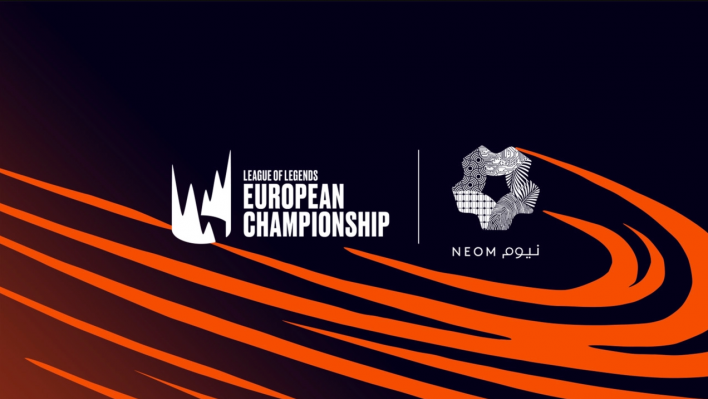
Despite all the PR chatter of being a partially autonomous city, Neom remains part of Saudi Arabia, which is what prompted the widespread backlash from League of Legends talent, community members, and fans. Simply put, the backward values of the kingdom are in stark contrast to everything the modern western society — including and especially the LEC — stands for.
Saudi Arabia is infamous for its disregard for gay and women rights, with homosexuals subject to public flogging, imprisonment, chemical castration, torture, and even execution. Women rights are few, and although Saudi Arabia has been taking steps to appoint women in a position of power, including as deputy ministers, their treatment is still far removed from that of western societies.
Add to that censorship of information, lack of religious freedoms, regular display of antisemitism, and the fact that public executions are still being held, and one can understand why a Saudi Arabia city was not welcomed as main sponsor of a League of Legends tournament.

At the end of this piece, one could ask: Why is such an article needed if the LEC/Neom partnership is already void? It’s because Neom still has a presence in esports, even if it’s not in League of Legends.
A day before LEC made the deal public, Danish-based tournament organizer BLAST announced it too is partnering with Neom. And while LEC’s Neom deal mostly included the naming rights to one of the broadcast segments, the Neom/BLAST partnership is much more significant.
According to the press release, BLAST will “assist them [Neom Sport] in shaping this long-term goal”, said BLAST CEO Robbie Douek, calling it a “record deal” for his company and a “testament to our recent growth and standing in the industry”. BLAST is to also introduce a Neom-themed CS:GO map and will help build an esports academy in the city.
The deal is a continuation of BLAST’s dealings with Arab kingdoms. In December 2019, BLAST hosted its $500,000 CS:GO Grand Finals in Riffa, Bahrain. BLAST is one of the premier tournament organizers in CS:GO and recently expanded to Dota 2 with the BLAST Bounty Hunt event.
It remains to be seen whether the CS:GO and Dota fanbases and talent will rise in similar fashion as LoL’s. For now, Neom remains in esports, raising the question: At what point does money become too bloody?
-

Esports editor and journalist of 10+ years. Lives on black tea and corgi love.
Sort by:
Comments :2
 Best Comment
Best Comment
-
3

level 1 oliverthom707
I genuinely like this blog. I felt satisfied in the wake of perusing your article.
-
3

level 1 oliverthom707
I genuinely like this blog. I felt satisfied in the wake of perusing your article. -
0

level 1 oliverthom707
The deal is a continuation of BLAST’s dealings with Arab kingdoms. In December 2019, BLAST hosted its $500,000 CS:GO Grand Finals in Riffa, Bahrain. BLAST is one of the premier tournament organizers in CS:GO and recently expanded to Dota 2 with the BLAST Bounty Hunt event. https://hellodear.in https://teatv.ltd


